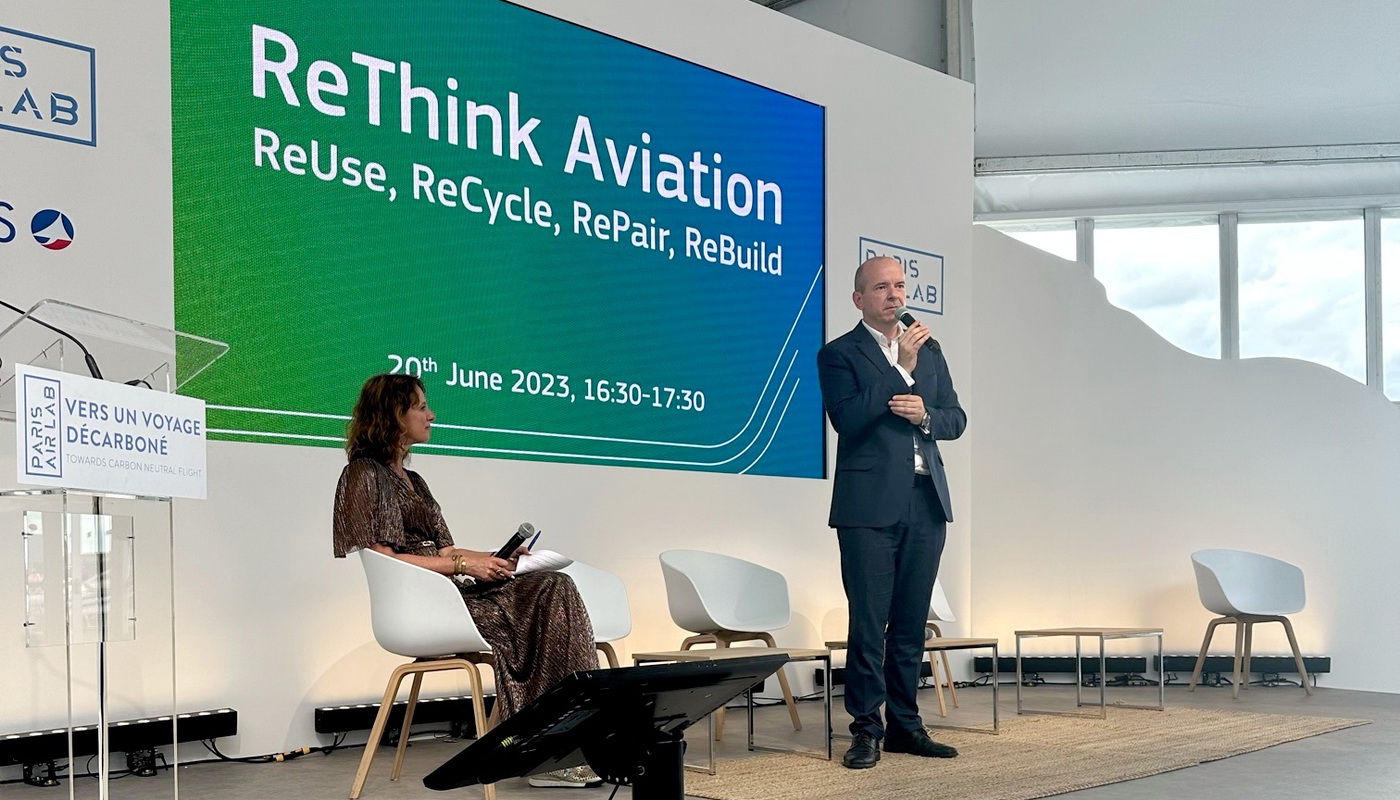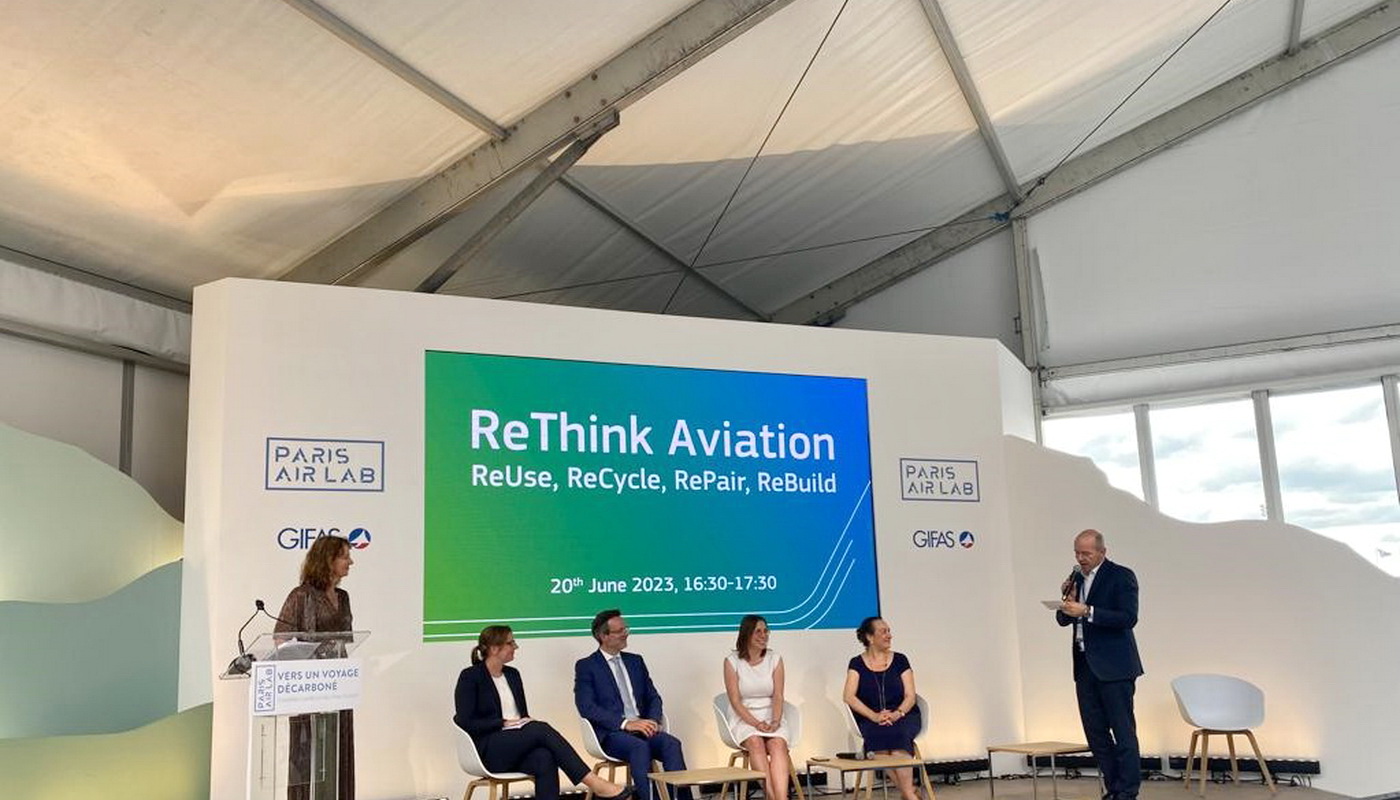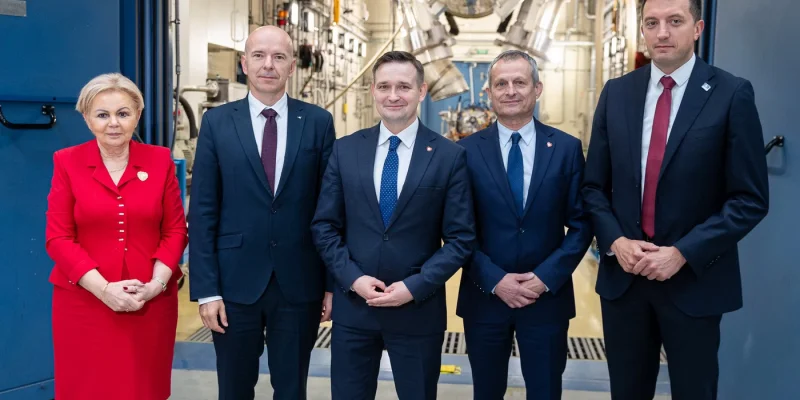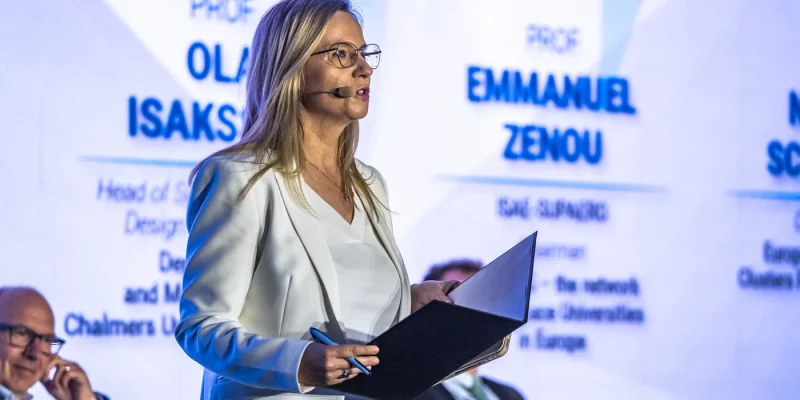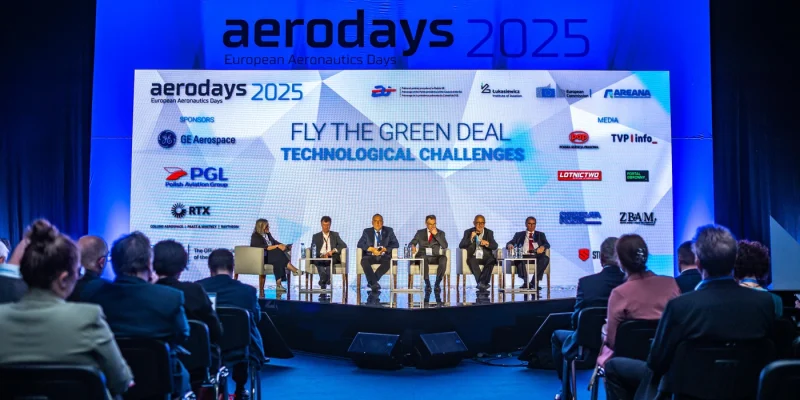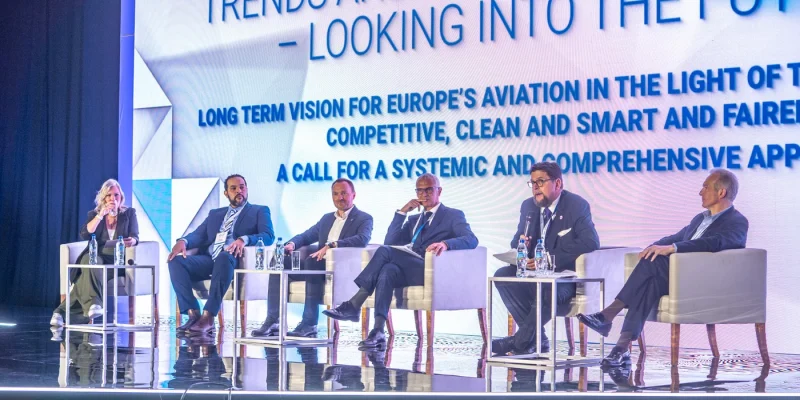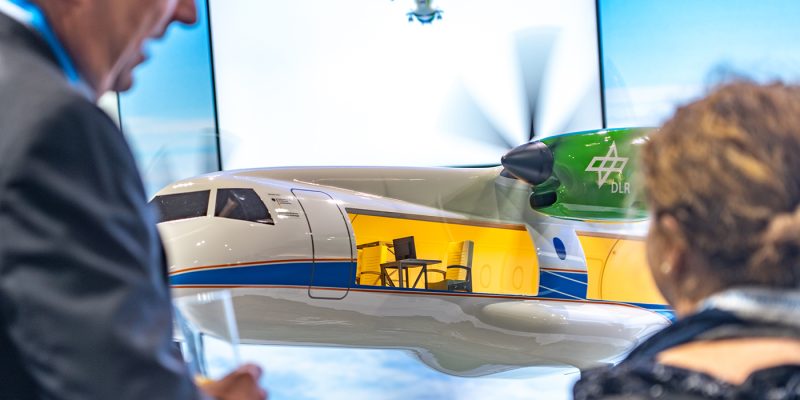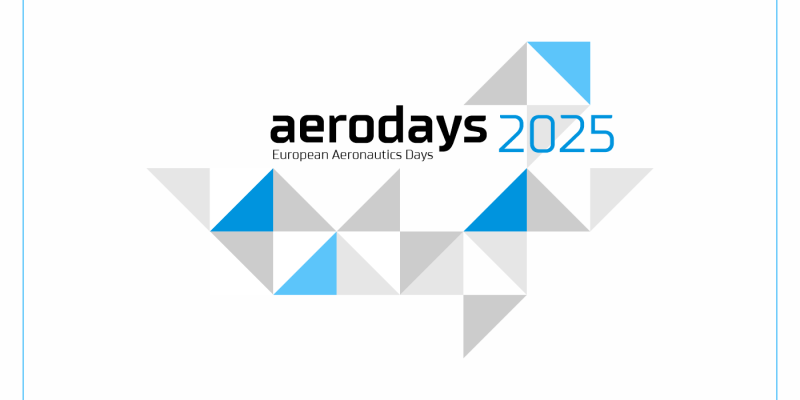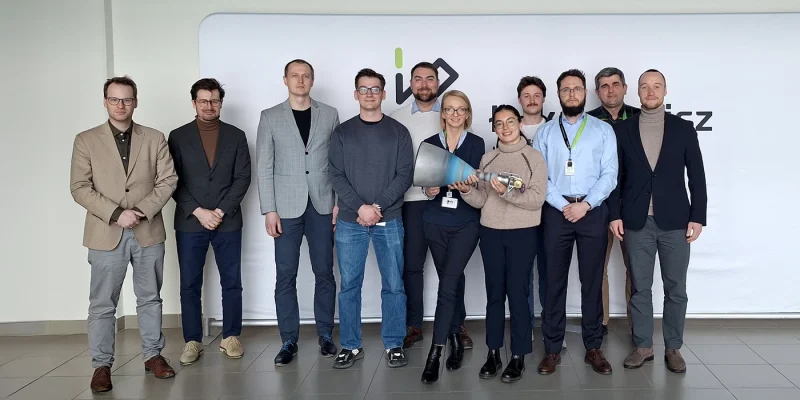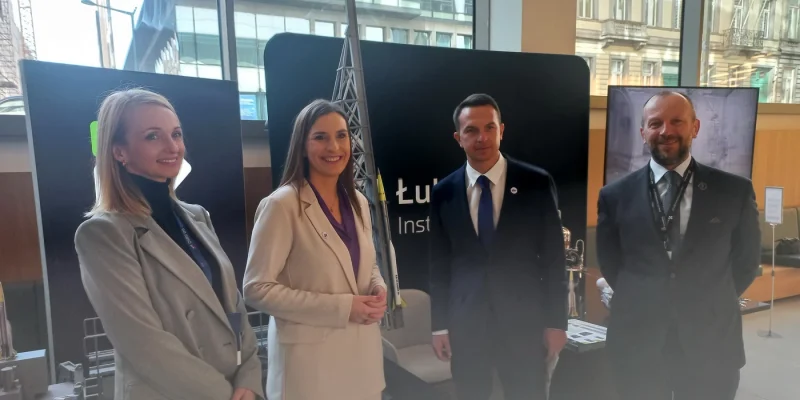One of the world’s largest aviation industry fairs – Paris Air Show 2023 – is behind us. The event is not only an air show, but also a place of debate about the future of aviation. On the second day of the event, was organized the debate “ReThink Aviation” , devoted to circularity in aviation, i.e. the use of new materials in the production of aircraft, their manufacturing, maintenance, replacement and reuse.
The “ReThink Aviation” debate, was conducted by the duo: Rosalinde van der Vlies, Director of Clean Planet at DG RTD and Dr. Eng. Paweł Stężycki, EREA Chairman, Director of the Łukasiewicz – Institute of Aviation. The event was organised by the European Commission, the General Directorate of Research and Development (DG RTD) and EREA Association.
As Dr. Eng. Stężycki said, to fully support the decarbonisation of aviation, we should also pay attention to the circularity of materials and their life cycle. This process should have started already 10 years ago because a product needs to be put into production, and it won’t happen right away. This starts at the drawing board and at the designing stage.
Recycling in aviation
During the debate, the invited panelists replied to the questions on activities related to the use and recycling of the airplane or its parts, described their company’s policies or activities in the context of circularity and how to approach the scientific and research environment.
Panelists: Isabell Gradert (Airbus), Lionel G.Roques (Tarmac AEROSAVE), Fatima da Gloria de Sousa (Air France/KLM) and Ligeia Paletti (NLR, Circularity Expert) pointed out that many actions have already been done but are not visible. It is important to reconcile economic effects with environmental benefits. It is possible to achieve aviation with a closed circuit and competitive, but it cannot be done with technology alone. The cooperation of every stakeholder – industry, research institutes, universities and the European Commission – is important.
Changes in aviation until 2050
The panel was summarised by Rosalinde van der Vlies and Paweł Stężycki. Director of the Łukasiewicz – Institute of Aviation stressed that in order to be able to reach the ambitious goals stated by the European Commission, we must act now. The introduction of legislation and regulations for the circularity of materials (their production, use and recycling, reusing and disposal) is a significant factor that will improve and speed up changes by 2050. The most important thing, however, is to keep the safety in aviation on the same level as it is now.
_
The Łukasiewicz Research Network – Institute of Aviation is one of the most modern research facilities in Europe, with traditions dating back to 1926. The Institute closely cooperates with global tycoons of the aviation industry, such as: Boeing, GE, Airbus, Pratt & Whitney, and institutions from the space industry, including the European Space Agency. Strategic research areas of the Institute are aviation, space and unmanned technologies. It also provides research and services for domestic and foreign industries in the field of materials, composite, additive, remote sensing, energy and oil&gas technologies. More: ilot.lukasiewicz.gov.pl/en/
The Łukasiewicz Research Network offers businesses attractive, broad and competitive technological solutions. Łukasiewicz provides a unique “challenge system” powered by a group of 4,500 scientists, who take up a business challenge and present the entrepreneur with potential solutions. At the same time, it provides access to cutting-edge capabilities and unique scientific infrastructure in the country. Most importantly – the entrepreneur does not bear the cost of preparing the conception of the research works. Łukasiewicz conveniently meets the expectations of the business. The entrepreneur can contact Łukasiewicz through an online form on our website https://lukasiewicz.gov.pl/en/business/ but also directly in over 50 locations of Łukasiewicz Institutes and their branches throughout Poland. Each site provides the same, high quality, product or service. Łukasiewicz focused on research areas such as: Health, Smart and Clean Mobility, Digital Transformation and Green and Low-emission Economy.


